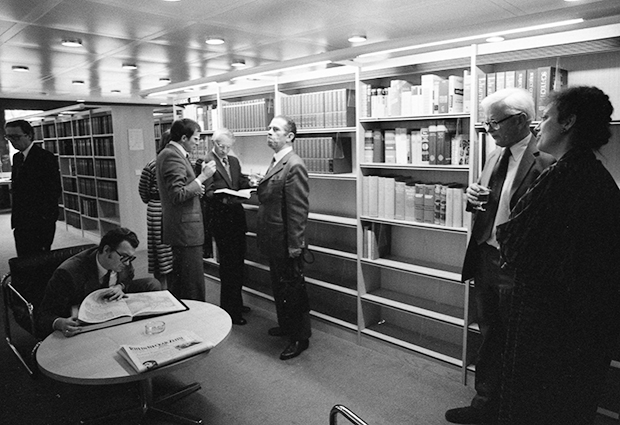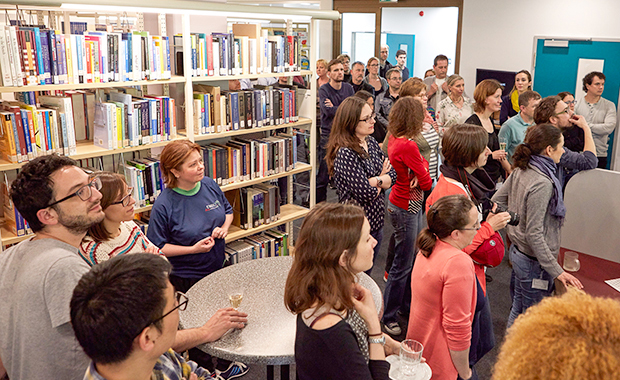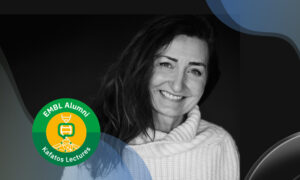
Szilárd Library: An open book
Past meets present as Library head Ioanna Ydraiou interviews EMBL’s first librarian


At the reopening of the Szilárd Library, EMBL’s Senior Librarian Ioanna Ydraiou took the opportunity to chat with special guest Mary Holmes, who headed the EMBL library from its founding in 1974 to 1998.
How and why was the Library founded?
John Kendrew, EMBL’s first Director-General, wanted a library from the outset. After we worked together in Cambridge, he approached me in 1974: ‘I don’t want a computerised library,’ he reassured me – he wanted something very old-fashioned. The first year I worked for free, in my spare time; it was exciting to build up a library from the first pencil.
It was exciting to build up a library from the first pencil.
What’s the story behind the name?
To recognise Leo Szilárd, Kendrew hoped to put his name to the campus access road, but the city preferred to name it after a Heidelberg scientist (Meyerhofstraße is named for Otto Meyerhof, a scientist from Max-Planck Institute for Medical Research). Instead, Kendrew named the library in Szilárd’s honour. I’ve heard a lot about Szilárd and would have loved to have met him. He died in 1964, but his wife did visit the library and was very appreciative of the gesture.

Starting from scratch must have been quite a challenge…
I’d never worked in a scientific library, so I visited the World Health Organisation in Geneva and the Biozentrum in Basel for inspiration. Initially, we subscribed to 30 journals, but we had no library in which to put them! I asked the then Head of Administration, ‘What happens when the journals arrive?’ He answered: ‘We’ll buy you two cupboards’. As the collection grew, the library moved and expanded from one small room, to two, then three. In 1977, the great day came to move up to the current site.
Until the 1990s, we had a card catalogue, and typed daily notices of journal deliveries.
And it kept evolving…
Fortunately, because there weren’t an enormous number of scientists initially, we could do things quite slowly. Until the 1990s, we had a card catalogue, and typed daily notices of journal deliveries. When we finally started online searching, only librarians could access the digital catalogue – scientists came directly to us, which must have been quite frustrating for them.
What was the highlight of your time as a librarian?
I still miss much about EMBL, the people especially. I particularly enjoyed developing the book collection myself, especially the ‘History and philosophy of science’ section – the people who borrowed extensively from this category were often my favourites!
Keep up to date with developments of EMBL’s library services online or contact Senior Librarian Ioanna Ydraiou: library@embl.de.


